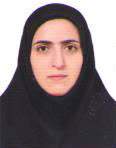| Authors | الهام شفایی مقدم,اکبر ذوالفقاری |
|---|
| Journal | Iranian Sociological Review (ISR) |
|---|
| Page number | 37 |
|---|
| Volume number | 14 |
|---|
| Paper Type | Full Paper |
|---|
| Published At | 2024-05-14 |
|---|
| Journal Grade | Scientific - research |
|---|
| Journal Type | Electronic |
|---|
| Journal Country | Iran, Islamic Republic Of |
|---|
Abstract
Objective: Recent studies to grow and strengthen the culture of charitable donations have focused on increasing
people's willingness to donate and charitable donations and their reasons. However, very little attention has been
paid to how people learn.
Methods: In this research, by using the participatory action research method, while Checking children's
perceptions and preferences of charity and benevolent behaviors, the role of parents and school in learning and
encouraging them to do good deeds has been investigated.
Results: Based on the results of the research, the investigated children have a wide and diverse range of
opportunities to participate in charity work through family and school. However, children have relatively limited
spaces to participate in charitable behaviors, who often see forgiveness as an exchange process without critical
engagement with the related cause. Whereas, if children are given an opportunity to meaningfully participate in
decision-making, children show critical awareness and more desire to increase social justice in their decisions.
Conclusions: Children as active and informed citizens, are empowered and competent to choose and evaluate
the charities they want to support, and this in turn helps them gain a greater understanding of the world around
them
